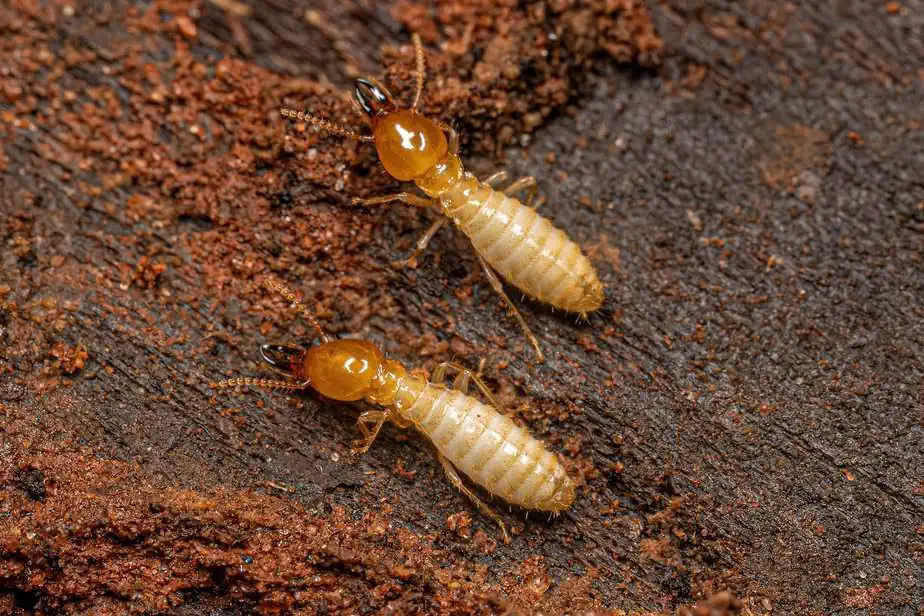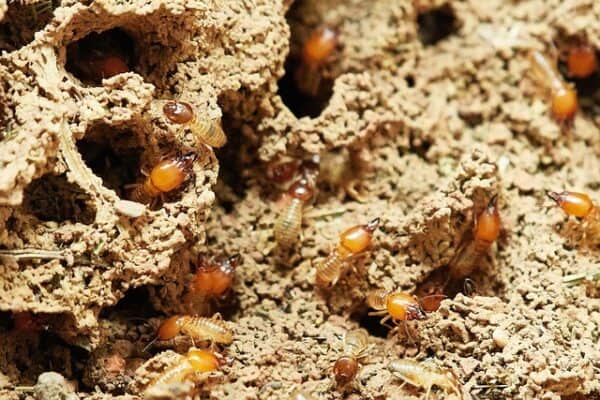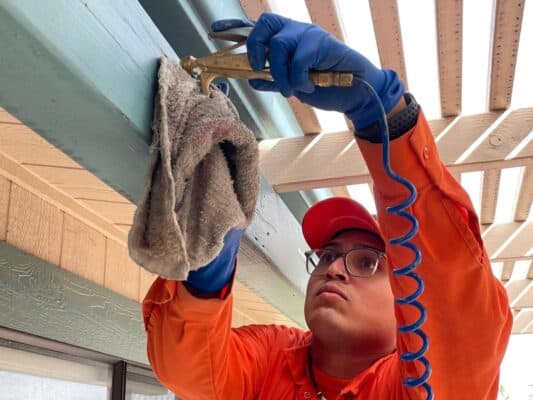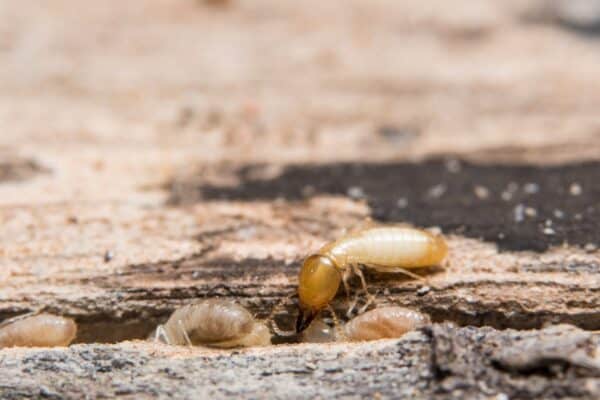
by pestcontrolseos | Apr 16, 2025 | Blog, Pest Info & Articles
Pests don’t visit just once. They come back. And when they do, you need someone you trust to handle the problem.
Finding a reliable pest control provider matters as much as finding a good doctor or mechanic. The right professional keeps your home safe year after year. They learn your property’s unique needs and spot pest-related problems before they get out of hand.

Why Ongoing Pest Management Beats One-Time Fixes
One-time treatments rarely solve pest problems for good. Here’s why:
- Many pests reproduce quickly. Kill some today, and more arrive tomorrow. Termites especially work this way. Just one surviving reproductive termite can start a whole new colony.
- Properties often have multiple infestation sites. Missing even one means pests return. As many homeowners discover, treating visible problems isn’t enough.
- Environmental factors change constantly. Weather shifts, neighboring properties develop issues, and new construction disturbs pest habitats. These changes bring new threats to your home.
- Regular maintenance prevents small issues from becoming expensive disasters. Think of pest control like changing your car’s oil. Skip a few services, and suddenly you need a new engine.
Qualities to Look for in a Long-Term Provider
Not all pest control companies work the same way. When seeking a lasting partnership, look for:
- Knowledge and expertise: Providers should clearly explain pest behaviors, treatment options, and prevention strategies. They should know the specific pests in your area.
- Transparency: Good companies discuss exactly what treatments they use, potential risks, and realistic outcomes. They don’t promise instant, permanent solutions to complex problems.
- Reliability: Consistent scheduling, on-time arrivals, and thorough service indicate a company that values your time and property.
- Personalized approach: Your home is unique. Effective providers customize treatments rather than applying one-size-fits-all solutions.
- Proper licensing and insurance: This protects both you and the provider if accidents happen.
- Ongoing education: Pest control methods evolve. Companies should stay current with the latest techniques and technologies.
- Communication skills: Look for providers who listen to your concerns and explain things in plain language.
Customer reviews often reveal these qualities. Pay attention to comments about technicians’ behavior and follow-up service.
Regular Inspections: The Key to Prevention
Annual or bi-annual inspections prevent minor issues from becoming disasters. They cost far less than emergency treatments after damage occurs.
Regular pest inspections matter most for termites. These pests cause structural damage that insurance often doesn’t cover. In Southern California’s warm climate, they work year-round without stopping.
During inspections, professionals check for:
- New pest activity
- Changes in property conditions
- Potential entry points
- Moisture problems
- Early warning signs of infestation
Schedule these visits consistently, ideally before peak pest seasons begin. Spring inspections catch problems before summer swarms. Fall checks prepare your home for pests seeking winter shelter.
The best inspectors explain what they’re seeing in real time. They show you problem areas and answer questions as they work.
Communication: The Heart of Any Good Relationship
Effective partnerships require open dialogue. Don’t wait for scheduled visits to discuss concerns.
Communicate promptly about:
- New pest sightings
- Property changes like renovations or landscaping
- Questions about treatments
- Scheduling needs
Good providers make communication easy. They respond quickly to calls or emails. They explain treatment plans in plain language. They follow up after service to ensure satisfaction.
They also keep detailed records of previous visits, treatments, and property conditions. This history helps track patterns and measure progress over time.
Don’t hesitate to provide feedback, both positive and negative. Professional companies want to improve their service.
Understanding Treatment Options and Approaches
Different pest problems require different solutions. Understanding basic approaches helps you participate in treatment decisions.
For termites, common treatments include:
- Soil treatments that create chemical barriers
- Bait systems that target entire colonies
- Orange oil treatments for drywood termites
- Wood treatments that prevent future infestations
For general pest control, providers might use:
- Targeted applications in specific problem areas
- Exclusion techniques that block pest entry
- Habitat modification to make your property less attractive to pests
- Monitoring systems that catch problems early
The best providers balance effectiveness with safety. They use the least toxic methods that will solve the problem. They explain risks and benefits of each approach.
Ask about integrated pest management (IPM) programs. These combine multiple strategies rather than relying solely on chemicals.
Working Together Between Professional Visits
Pest control works best as a partnership. Between professional visits, you play a crucial role.
Simple steps make a big difference:
- Fix leaky pipes and improve drainage
- Store firewood away from your home
- Trim branches that touch your house
- Remove standing water from your property
- Keep food stored properly
- Seal cracks and gaps in your home’s exterior
Your provider should suggest specific preventive measures for your situation. Follow these recommendations. They reduce the need for chemical treatments and save money over time.
Report new issues promptly. Early intervention prevents small problems from growing larger.
The Value of Trust in Pest Control
Ultimately, successful pest control relationships build on trust. Your provider enters your home. They apply treatments that affect your living environment. You rely on their expertise to protect your investment.
This trust develops through consistent service, honest communication, and proven results. It grows stronger with each positive interaction.
Finding a trustworthy pest control provider takes effort initially. But the long-term benefits of this effort are worthwhile.
Take time to find a provider who values this relationship as much as you do. The effort you invest now pays dividends in your home’s protection for years.

by pestcontrolseos | Apr 2, 2025 | Blog, Pest Info & Articles
House hunting is exciting. You find a place you love. The price seems right. But have you checked for termites yet?
Termites cause billions in property damage each year. They eat wood from the inside out. You often can’t see them until they’ve done serious damage.
A little knowledge when it comes to termite infestations now saves you from huge financial headaches later.

Why Termite Inspections Matter When House Hunting
Termites weaken foundations and damage support beams. They create hollow spaces in wood. This affects your home’s structure. Over time, floors may sag. Walls might crack. In severe cases, parts of the house could collapse. These issues aren’t just expensive to fix. They’re dangerous.
Even with repairs, the stigma remains. If you plan to sell someday, previous termite damage could hurt your asking price.
Most mortgage lenders require termite inspections before approving loans. They know the risks. You should, too.
Red Flags to Watch For During Home Viewings
You don’t need to be an expert to spot possible termite problems.
Here’s what to look for:
- Hollow-sounding wood: Tap on wooden surfaces like walls, floors, and window frames. Hollow sounds suggest termites have eaten the wood from the inside.
- Mud tubes on foundations: These pencil-width tunnels run up foundation walls. Subterranean termites build them for protection as they travel between soil and wood.
- Paint problems: Look for blistering, bubbling, or peeling paint on walls and woodwork. Termites create moisture as they tunnel, which affects paint.
- Discarded wings: Reproductive termites shed wings after finding mates. Small piles near windows or doors signal a termite swarm happened recently.
- Tight doors and windows: Termite damage can warp door frames and windows, making them hard to open or close.
- Uneven floors: Feel for dips or soft spots when walking across floors. Pay attention to creaking or bouncing.
- Frass (termite droppings): Drywood termites leave behind small piles of what looks like sawdust or coffee grounds.
- Damaged wood: Check exposed beams in basements, attics, and crawl spaces for tunnels, holes, or damage.
If you notice any of these signs, ask more questions. Request professional inspection. Don’t ignore your concerns.
Questions to Ask Sellers and Agents
Don’t rely just on what you see. Ask sellers these direct questions:
- “Has this house ever had termite problems?”
- “When was the last professional termite inspection done?”
- “Can I see reports from previous inspections?”
- “Have there been termite treatments in the past? What kind?”
- “Does the home have any moisture issues?”
- “Are there any current warranties or guarantees for termite work?”
Honest answers help you make informed decisions. If the seller seems evasive, consider that a warning sign.
Professional Termite Inspections: What to Expect
While you can spot obvious signs, professional termite exterminators catch what most people miss. They know where and how to look. They understand different termite species and behaviors.
A thorough inspection covers:
- Exterior perimeter
- Foundation
- Crawl spaces
- Attic
- Interior walls
- Windows and doors
- Any wooden structures
Good inspectors tap wood surfaces, check moisture levels, and look for subtle damage signs. They inspect mud tubes to determine if they’re active or abandoned.
After the inspection, expect a detailed report with findings, photos, and recommendations. Some companies even offer guarantees on their assessments as a sign of confidence in their abilities and services.
Prevention Measures Worth Negotiating
If you love a home but discover termite concerns, consider negotiating these preventive measures into your purchase:
- Soil treatment: Chemical barriers in soil create protection zones around foundations.
- Bait systems: Stations placed around the property kill termites and their colonies.
- Wood treatment: Pressure-treated lumber resists termites better than untreated wood.
- Physical barriers: Metal mesh or sand barriers installed during construction block termite entry.
- Moisture control: Proper drainage, fixed leaks, and dehumidifiers reduce conditions termites love.
- Regular inspections: Annual professional checks catch problems early.
Some sellers might include termite bonds or warranties with the sale. These agreements provide ongoing inspections and treatment if needed.
When to Walk Away
Sometimes, termite problems simply cost too much to fix. Consider walking away when:
- Structural damage affects load-bearing walls or support beams
- Repair estimates exceed 10% of the home’s value
- The seller won’t disclose previous termite history
- Multiple active infestations exist throughout the property
- Foundation damage appears extensive
- The home has had repeated treatments without success
No house is perfect. But termite issues can turn dream homes into nightmares. Trust your instincts.
Final Thoughts: Protection After Purchase
Once you buy, stay vigilant. Termites don’t stop working just because ownership changes.
Schedule yearly inspections with licensed professionals. Fix moisture problems quickly. Keep wood away from soil when possible. Trim branches that touch your house.
These simple steps protect your investment for years to come.
Remember, termites work silently. You won’t hear them chewing. But with proper knowledge, care, and help from termite experts, you’ll stop them before they cause serious harm.

by pestcontrolseos | Mar 6, 2025 | Blog, Pest Info & Articles
Spring’s warmer weather wakes termites from winter dormancy, triggering swarms that threaten homes. These pests seek new nesting sites, often targeting structures with moisture-damaged wood or easy soil access. Unfortunately, unlike other pests, left unchecked and untreated with termite control, termite colonies can cause the most financial damage, resulting in thousands of dollars needed in structural repairs, and that’s if the damage they do can still be repaired.
Here are actionable steps that you can take as a homeowner to protect your home during this high-risk season.

Effective Prevention Strategies Against Termite Infestations
Reduce Moisture Around Your Property
Termites thrive in damp environments. Fix leaky pipes, clean clogged gutters, and direct downspouts away from foundations. Install dehumidifiers in basements or crawl spaces to maintain humidity below 50%. Avoid stacking firewood or mulch against exterior walls, as these retain moisture and attract termites.
Seal Entry Points
Inspect foundations for cracks, gaps around pipes, or loose mortar. Seal openings with silicone-based caulk or cement. Repair torn window screens and install door sweeps to block swarmers. Replace weather-damaged wood on decks, fences, or siding with termite-resistant materials like pressure-treated lumber or metal.
Use Orange Oil
For existing homes, non-repellent treatments create invisible shields. Orange oil, derived from citrus peels, offers a plant-based alternative. It penetrates wood, eliminating drywood termites without disrupting daily life. This method works well for localized infestations but may require professional application for larger colonies.
Landscape Mindfully
Keep shrubs, trees, and vines trimmed away from structures. Overgrown vegetation creates shaded, moist areas that termites favor. Use gravel or stone barriers instead of mulch near foundations. Maintain at least an 18-inch gap between soil and wooden structures to deter subterranean termites.
Schedule Professional Inspections
Annual inspections in early spring catch swarms before colonies form. Technicians use advanced tools to assess risk levels, including damp zones, and other tools to detect the most subtle signs of active colonies.
A Step-by-Step Breakdown of the Termite Inspection Process
Termite inspections are thorough. They can last anywhere between 1-2 hours, depending on property size.
Here’s how professional termite experts make sure that no termite goes unnoticed:
1. Exterior Inspection
Technicians examine foundations, siding, and landscaping. They probe soil around the perimeter for mud tubes and check wooden structures like decks or fences for damage. Crawl spaces and attic vents are inspected for swarmers or frass.
2. Interior Inspection
Every room is scrutinized, focusing on moisture-prone areas like basements, bathrooms, and kitchens. Walls are tapped to detect hollow sounds, and floors are checked for buckling.
3. Report and Recommendations
Homeowners receive a detailed report with photos of findings. Professionals will also provide cost estimates and timelines for better transparency.
4. Follow-Up Plans
For active infestations, professionals schedule immediate treatment. For preventive care, seasonal maintenance is a must. Quarterly monitoring station checks can prevent termite infestations from taking hold.
Long-Term Benefits of Spring Termite Control
Prevents Structural Damage
Termites silently eat support beams, flooring, and insulation. Early detection and treatment preserve your home’s integrity, avoiding costly repairs.
Saves Money
Addressing swarms in spring reduces the need for extensive extermination later. The National Pest Management Association estimates termites cause over $5 billion in annual property damage—preventive care slashes these costs.
Protects Health
While termites don’t transmit diseases, infestations worsen allergies by dispersing frass and mold spores. Eliminating colonies improves indoor air quality.
Maintains Property Value
Homes with termite histories often require disclosures during sales, lowering resale value. Proactive control keeps records clean, reassuring potential buyers.
Long-Term Strategies for Lasting Termite Protection
Protecting a home from termites isn’t a one-time task. Maintain a consistent prevention routine by trimming overhanging branches that create shade and moisture. Choose termite-resistant materials like pressure-treated lumber or metal framing for renovations. Educate yourself about local termite species. Basically, what we’re trying to say is to stay proactive even after treatment.
If you live in a community with high termite activity, you can ask your neighbors if you can all combine your efforts to fight against these annoying pests, reducing overall risks and costs.
Regular Inspections Can Save Your Home
Termites operate silently, often causing damage long before detection. Schedule annual inspections with licensed pest control experts. In regions prone to infestations, monitoring systems provide ongoing protection. These devices attract termites then eliminate entire colonies through slow-acting agents. Early intervention minimizes repair costs and preserves structural integrity.
But if you notice swarms appearing indoors at your home, don’t disturb them. Collect a sample for identification and call an expert immediately. They’ll give you a list of options to use for your particular case, letting you choose between localized and targeted treatments and last-resort options in case the infestations are too severe and intensive.
Remember, termite management is an ongoing process. Stay alert, stay informed, and your wallet will be safe from termite infestations.

by pestcontrolseos | Feb 28, 2025 | Blog, Pest Info & Articles
Many property owners only think about pest control after spotting unwelcome visitors. By then, the problem has often grown beyond a simple fix. This reactive approach costs more money, creates additional stress, and frequently results in recurring issues. A prevention-focused strategy offers a better alternative with lasting benefits.

Why Prevention Matters More Than Treatment
Pests work silently behind walls and in dark corners long before becoming visible. When you finally spot these intruders, you see just the tip of a much larger problem. By this point, the damage extends far beyond what’s immediately visible. Emergency treatments address only the apparent symptoms without tackling the underlying conditions that allow pests to thrive.
Emergency treatments are always available, but they’re expensive and a big pain. You can’t always expect pest control companies to be available in the middle of the night or to be at your beck and call, especially when dealing with a severe infestation. Not to mention, emergency treatments seldom address the underlying conditions that allowed the pests to thrive in the first place.
Prevention costs significantly less than emergency response. A scheduled inspection might cost a fraction of emergency treatment for an established infestation. More importantly, preventive approaches avoid property damage, health risks, and stress of significant pest problems.
The Power of Professional Inspection
Most homeowners lack the training to spot early warning signs of pest activity. This is where pest control companies come in. Professional inspectors know precisely where to look and what subtle clues indicate developing problems. They identify the tiny mud tubes termites build inside walls, recognize the distinctive gnaw patterns of different rodent species, and detect the nearly invisible eggs bed bugs hide in furniture seams using specialized equipment and knowledge they’ve gained from years of experience and constant education.
Beyond identifying existing pests, these inspections uncover conditions that attract unwanted visitors, transforming pest management from reactive crisis management to methodical prevention.
Catching problems early means simpler, less expensive solutions and less disruption to your home or business.
The Experience Factor in Prevention
Experienced pest management professionals bring something invaluable to prevention efforts: pattern recognition developed through years of fieldwork.
Local professionals have seen how infestations develop across hundreds of properties and can anticipate problems before they manifest. This expertise allows them to spot subtle warning signs most property owners would miss. They recognize the slight discoloration, indicating moisture damage that will soon attract termites. They identify the seemingly minor gaps that provide perfect entry points for mice seeking winter shelter.
Receiving professional training in Integrated Pest Management principles, when paired with experience, results in comprehensive protection that addresses root causes rather than just symptoms.
Modern Approaches to Pest Control
Pest control today is no longer like what it was many years ago. Professionals have come up with innovative ways in recent years, offering more options for property owners concerned about the environmental impact of traditional methods but still don’t want to compromise the results.
Many companies today now use natural and eco-friendly deterrents. For example, orange oil provides alternatives to conventional treatments for certain pests, including termites. These plant-based solutions disrupt pest biology without introducing harsh substances into living spaces. Similarly, certain landscaping choices naturally discourage pest activity around structures.
Pest control technology has revolutionized prevention strategies, targeting specific pest colonies while minimizing impact on non-target species and beneficial insects. These innovations allow for more precise, targeted prevention focused on specific vulnerabilities rather than blanket applications.
Daily Habits that Support Prevention
While professional expertise provides an essential foundation for prevention, your daily habits significantly impact pest vulnerability.
These small, consistent actions create layers of protection that complement professional pest control strategies:
- Store firewood away from foundations prevents termites from easily transitioning from lumber to structural wood.
- Fix dripping faucets eliminates water sources that attract many pests.
- Install door sweeps and weather stripping blocks at common entry points.
- Use airtight containers for pantry items denies pests easy access to nutrition.
- Empty trash to prevent accumulate food waste from attracting rodents and insects
- Keep gutters clean to prevent standing water from accumulating
- Trim vegetation away to eliminate bridges pests may use to gain access
- Proper compost management to prevent it from becoming a pest attractant
Building Long-Term Pest Protection
Effective pest management requires shifting from crisis response to strategic prevention. This approach addresses underlying vulnerabilities before they result in infestations. The benefits include lower long-term costs, reduced property damage, fewer health concerns, and greater security.
By understanding regional pest patterns, scheduling regular professional inspections, adopting innovative prevention techniques, and maintaining daily habits that discourage pest activity, property owners create multiple layers of protection. This comprehensive approach minimizes reliance on reactive treatments while providing more sustainable results.
Prevention turns pest control from an emergency to a maintenance system that preserves property value and protects occupant health. The result is more effective protection with reduced environmental impact.
While no strategy can guarantee complete freedom from pest problems, preventive approaches dramatically reduce risks and provide early warning when issues develop.

by pestcontrolseos | Feb 23, 2025 | Blog, Pest Info & Articles
Termites are expensive to have, expensive to get rid of, and even expensive to prevent, but ask any homeowner who’s had to deal with them, and they’ll be the first to tell you that they’d rather have spent money upfront to stay away from termite infestations. The truth is, termites cause untold property damage across the United States every year. This isn’t including the mental toll of dealing with termite infestations, mind you.
Understanding how professionals tackle these silent invaders helps homeowners make informed decisions.
Let’s break down the process, from spotting early signs to applying treatments that keep homes safe.

Understanding Termites and Why Treatment Can’t Wait
Before diving into treatment steps, recognizing why termites demand immediate action matters. These pests feed on cellulose in wood, quietly chewing through walls, floors, and even furniture. Subterranean termites build underground colonies and enter homes through mud tubes, while dry wood varieties nest directly inside wooden structures. Without intervention, colonies grow rapidly, compromising a building’s integrity.
Early signs include hollow-sounding wood, discarded wings near windowsills, or mud tubes along foundations. Ignoring these clues risks extensive repairs. Professional treatment stops existing infestations and prevents future ones, safeguarding property value and safety.
Step 1: The Inspection – Finding the Problem Before It Grows
Every effective termite strategy starts with a detailed inspection. Trained technicians examine homes inside and out, searching for visible damage, mud tubes, or frass (termite droppings). They also check moisture-prone areas like basements and crawl spaces since damp wood attracts pests. Advanced tools like infrared cameras or moisture meters help detect hidden activity behind walls or under floors.
Inspectors identify the termite species involved, as treatment methods vary. For example, dry wood termites nesting in attic beams might require different approaches than subterranean colonies near a home’s foundation. This phase pinpoints hotspots and determines the treatment scope, ensuring nothing gets overlooked.
Step 2: Choosing the Right Treatment Method
Once inspectors assess the situation, they recommend solutions tailored to the infestation’s size, location, and species.
Here’s a closer look at common methods:
Whole-Structure Tenting for Widespread Infestations
When termites infest multiple areas or the entire building, tenting becomes necessary. Professionals seal the home under a large tent and release a gas-based fumigant. This penetrates every crevice, eliminating colonies within days. While disruptive—requiring residents to vacate temporarily—tenting offers a definitive fix for severe cases.
Orange Oil Treatments: A Targeted, Eco-Friendly Option
For smaller, localized drywood termite problems, orange oil provides a greener alternative. Derived from citrus rinds, this natural substance kills termites on contact and breaks down their eggs. Technicians inject it directly into infested wood, minimizing environmental impact. Though less invasive than tenting, orange oil works best when infestations remain confined to specific areas.
Soil Treatments and Bait Systems for Subterranean Species
Subterranean termites require different tactics. Liquid termiticides create a chemical barrier in soil around a home’s perimeter, deterring pests from entering. Bait stations placed strategically in the yard attract termites, which then carry poison back to their colonies. Both methods aim to disrupt the termite life cycle at its source.
Step 3: Applying the Treatment – Precision Matters
With a plan in place, technicians begin treatment. Timing and accuracy matter here. For tenting, they coordinate with homeowners to schedule vacating periods and secure the structure. During orange oil applications, they drill small holes into infested wood to inject the solution without unnecessary damage. Soil treatments involve digging trenches around foundations and evenly distributing termiticide.
Safety protocols protect both residents and technicians. Fumigants require careful handling, while orange oil’s low toxicity makes it safer for indoor use. Clear communication about preparation steps—like removing plants or covering food—keeps everyone informed.
Step 4: Post-Treatment Monitoring and Prevention
Termite control doesn’t end after initial treatment. Follow-up inspections catch new activity early. Many companies offer annual check-ups, revisit homes to monitor bait stations, inspect vulnerable areas, and reapply barriers if needed.
Homeowners also play a role in prevention. Reducing moisture in and around the property by fixing leaks, storing firewood away from the house, and sealing cracks in foundations makes the entire household less inviting.
Regular DIY checks for mud tubes or damaged wood help spot issues before they escalate, allowing for immediate treatment.
Why Professional Expertise Makes All the Difference
Termites thrive on unpredictability, but professionals counter them with structured, adaptable plans. From identifying species to tailoring treatments, each step addresses specific challenges. Orange oil’s eco-friendly approach suits eco-conscious households, while liquid barriers provide a robust defense for high-risk areas. Bait systems offer a middle ground, balancing safety and efficacy.
Attempting termite control without knowledge risks incomplete eradication or collateral damage. Professionals not only eliminate existing colonies but also fortify homes against future threats. Their training and tools transform a complex problem into a manageable process.
Protecting Your Home Starts with Knowledge
Understanding the treatment process demystifies what happens behind the scenes, highlighting the value of professional intervention.
From pinpointing infestations to selecting the right remedy, each step prioritizes long-term protection. After all, safeguarding a home isn’t just about solving problems today—it’s about preventing them tomorrow.

by pestcontrolseos | Feb 17, 2025 | Blog, Pest Info & Articles
Termites thrive in Southern California’s warm climate, making homes across the region vulnerable to silent destruction. These pests chew through wood, insulation, and even wallpaper, often undetected until significant damage to surfaces. Restoring a property after an infestation involves more than replacing damaged beams—it demands understanding how termites operate, selecting effective treatments, and fortifying structures against future invasions.
This guide walks homeowners through practical steps for recovery while highlighting strategies to protect investments in a region where termite activity never truly sleeps.

Why Southern California Homes Face Higher Termite Risks
Mild winters and arid summers create ideal conditions for termites. Subterranean species, common in the area, build colonies underground and tunnel toward wooden structures. Drywood termites also pose threats, nesting directly inside furniture, floors, or attics without needing soil contact. Coastal humidity further accelerates wood decay, giving pests easier access to weakened materials. Older homes with original foundations or untreated timber face elevated risks, but newer builds aren’t immune, either.
For all these reasons, and more, regular pest control inspections become critical, as early detection minimizes repair costs and prevents colonies from spreading.
Recognizing Signs of Termite Damage in Your Home
Termites work quietly, but subtle clues hint at their presence. Mud tubes climbing foundation walls signal subterranean activity. These pencil-width tunnels protect pests from predators and dry air. Discarded wings near windowsills indicate swarmers—reproductive termites seeking new nesting sites. Hollow-sounding wood or floors that sag underfoot suggest internal damage. Frass, resembling sawdust or coffee grounds, often piles up near dry wood termite exit holes. Blistering paint or tiny holes in drywall might also point to hidden infestations.
Catching these signs early can mean the difference between minor repairs and major structural overhauls.
Steps to Assess and Repair Structural Damage
Once termites invade, acting fast prevents further harm.
You can take these steps against termite damage:
- Start by hiring a licensed inspector to evaluate compromised areas to determine if severely damaged beams or support posts require immediate replacement and which ones can still be repaired.
- Drywall with extensive tunneling needs removal, while flooring may demand partial or full reinstatement. Electrical wiring encased in termite-riddled walls should undergo safety checks to prevent fire hazards.
- When replacing termite-infested material, choose pressure-treated lumber or steel framing this time. These are more resistant to future termite attacks compared to conventional building materials.
Cosmetic fixes come last. Sand and repaint walls once structural integrity gets restored. Refinish hardwood floors to erase surface blemishes.
What’s important against termite damage is to get a thorough inspection. Skipping this step risks overlooking nests still active within the walls.
Choosing the Right Treatment to Eliminate Termites
Eradication methods vary based on termite type and infestation severity. For dry wood termite species, localized treatments like orange oil injections prove effective. Derived from citrus rinds, this eco-friendly solution dehydrates termites without leaving toxic residues.
Fumigation remains a last resort for widespread infestations. Homes get covered with tents, and gas penetrates every crevice to eliminate pests. While highly effective, this process requires vacating properties for several days. Post-treatment, pest control companies will monitor activity with regular inspections to confirm success.
Preventing Future Infestations Through Proactive Measures
Termites return when conditions invite them. You can do your part by reducing attractants and fixing leaky pipes, and directing water from downspouts away from foundations. Store firewood at least 20 feet from houses and elevate it off the soil. Replace mulch near structures with gravel or rubber alternatives. Seal cracks in concrete slabs or exterior walls using silicone caulk. You may also consider installing termite-resistant materials, such as metal mesh barriers beneath concrete pads during renovations.
However, the best way to keep termite infestations at bay is to schedule annual inspections, ideally before they start swarming during spring.
Professionals spot vulnerabilities like wood-to-soil contact or moisture buildup in crawl spaces. Early intervention often avoids costly treatments.
When to Consult a Structural Engineer Post-Infestation
Severe infestations can weaken load-bearing walls or roof supports. If floors feel spongy or doors no longer close properly, hire a structural engineer. These specialists assess damage beyond surface-level fixes, recommending reinforcements like steel beams or supplemental joists. Their reports guide contractors during rebuilds. This way, your home will meet safety standards, protecting you from potentially spending more money repairing something that’s going to put your family’s safety at risk anyway.
Coping with the Emotional Toll of Termite Damage
Discovering an infestation triggers stress, frustration, and anxiety about costs. Talk openly with contractors about timelines and budgets. Join local homeowner forums to share experiences and gather advice. Focus on long-term solutions—viewing repairs as investments in your property’s longevity.
In a region where termites thrive year-round, vigilance paired with expert insight remains the strongest defense.
When you’re restoring your home after an infestation, you’re not just repairing it. You’re also rebuilding your confidence in your home.









































